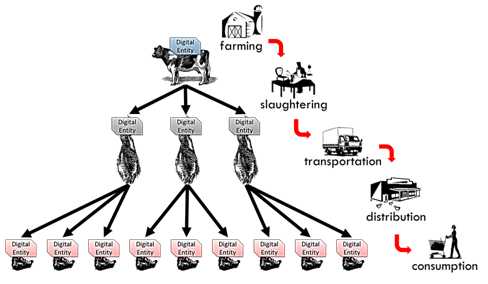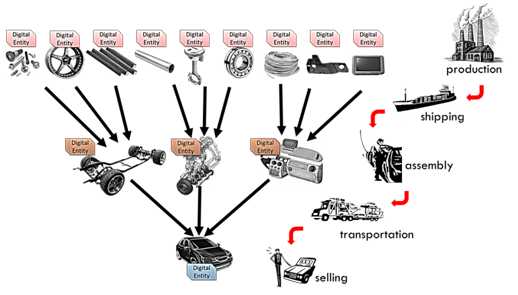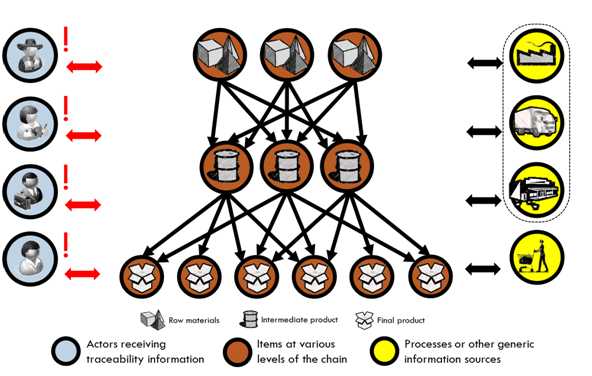Navigation
 Home
Home Contact Us
Contact Us Search the Site
Search the SiteThe ebbits Project
 Project Overview
Project Overview The Platform
The Platform Try our ebbits on-line demos
Try our ebbits on-line demos Partners
Partners List of deliverables
List of deliverablesNewsroom
 All News
All News Events
Events Conference publications
Conference publications Journal publications
Journal publications All project publications
All project publications ebbits in the press
ebbits in the press Video archive
Video archiveAffiliations
The ebbits project is affiliated with the following programs and organisations:
The ebbits project is active in the FInES cluster, the Future Internet Enterprise Systems (FInES) Cluster, where ebbits is leading the taskforces on international relations and manufacture and industry. Read more here.

The ebbits project is part of the Cluster of European projects on the Internet of Things. The Cluster aims to promote a common vision of the Internet of Things. ebbits is leading the taskforce on semantic interoperability
About us
The ebbits project is a 4-year project started in 2010. It is partly funded by the European Commission under the 7th Framework Programme in the area of Internet of Things and Enterprise environments under Grant Agreement no. 257852

 Impressum
Impressum  Privacy
Privacy

Newsletter Subscription
Registered Members Only
Previous newsletters
Read previous issues of our newsletter here: September 2011
September 2011 August 2012
August 2012 August 2013
August 2013
 June 2014
June 2014
 March 2015
March 2015Popular Downloads
 D5.1.1 Concept and Tec... D5.1.1 Concept and Tec... |
15030 |
 Anonymous Networking ... Anonymous Networking ... |
10089 |
 D3.8 Legal, IPR and li... D3.8 Legal, IPR and li... |
8995 |
 The EBBITS Project: An... The EBBITS Project: An... |
7513 |
 The Semantic Middlewar... The Semantic Middlewar... |
5915 |
Sign In
Possible extension of ebbits
The ebbits project has applied for a 6-month project extension to further develop the end-to-end business applications in both the manufacturing and food traceability domains.
- One of the main new features that we want to implement is the support of the many-to-many relationship on one platform which can handle both the one-to-many relation in food traceability and the many-to-one relation in car manufacturing, explains Project Coordinator Markus Eisenhauer from Fraunhofer Institute, FIT.

 Whereas the food traceability chain follows an one-to-many relationship - moving from one animal to many products, the car manufacturing environment addresses a many-to-one relationship - moving from many parts to one product. The ebbits project aims to overcome the limitations inherent in these contrasting scenarios by introducing a many-to-many relationship between items along the chain.
Whereas the food traceability chain follows an one-to-many relationship - moving from one animal to many products, the car manufacturing environment addresses a many-to-one relationship - moving from many parts to one product. The ebbits project aims to overcome the limitations inherent in these contrasting scenarios by introducing a many-to-many relationship between items along the chain.
- Generalising the architecture in this way will allow it to address the many-to-many relationships between actors and sources of information which compose a generic traceability chain, Markus Eisenhauer explains.
The concept of many-to-many relations reflects a complex traceability scenario that includes items at various levels of the chain such as generic raw materials, intermediate products and final products. The different processes are considered, including production, transportation, distribution and purchase/usage of the goods. And the actors are portrayed according to their different position in the chain and their interest in receiving specific traceability information.
- The ebbits platform will support these complex interactions by managing a wide range of heterogeneous tags, devices, sensors, transponders, gateways and smart phones as well as sub-systems adopted in the various processes of the chain, says Markus Eisenhauer and continues:
- All tags and devices will be digitally represented as entities thus virtualizing all items in the chain. All the processes and the other sources of information will be abstracted as entities. In the resulting virtualized traceability chain, specific ebbits components will collect and harmonize data, perform data mining and knowledge extraction and finally correlate items, processes and other sources of information. In such a framework, novel context-aware value-added services may be easily created.

Demonstrating recall procedures and ratings
The traceability demonstrator will be extended with integration and implementation of traceability information regarding two food products consisting of ingredients from several sources.
- It will pose a real illustration of how to handle complex recall procedures for mixed products and it will illustrate how individual suppliers of ingredients can be rated, based on Big Data techniques applied to feedback from consumers, Markus Eisenhauer explains.
The aim is also to exchange some of the data simulators with real data sources. The demonstrator will be able to interact with a farm management system and with the National Cattle Database in Denmark in real time. Efforts will also be made to collect real time sensor data from transportation of animals and cut meat. Finally, the demonstrator will interact in real time with sensors at farm level.
Integration of new automation devices
New automation devices will be added to the automotive manufacturing demonstrator, extending the COMAU product line compliancy. The C4G robot controller interface will be extended with the integration of C5G and C5G-Open robot controllers. The integration of COMAU standard products will continue with further investigation and implementation starting from the area of transport systems, analysing the extension of the ebbits platform to COMAU Versa-Rolls and Accumulating Pallet Conveyors (APC).
- As for the food traceability application, activities related to life cycle management will also be extended to the automotive domain. In particular, we will demonstrate the energy footprint of a car across the full production chain, from the single element to the final product, Markus Eisenhauer concludes.
- One of the main new features that we want to implement is the support of the many-to-many relationship on one platform which can handle both the one-to-many relation in food traceability and the many-to-one relation in car manufacturing, explains Project Coordinator Markus Eisenhauer from Fraunhofer Institute, FIT.

 Whereas the food traceability chain follows an one-to-many relationship - moving from one animal to many products, the car manufacturing environment addresses a many-to-one relationship - moving from many parts to one product. The ebbits project aims to overcome the limitations inherent in these contrasting scenarios by introducing a many-to-many relationship between items along the chain.
Whereas the food traceability chain follows an one-to-many relationship - moving from one animal to many products, the car manufacturing environment addresses a many-to-one relationship - moving from many parts to one product. The ebbits project aims to overcome the limitations inherent in these contrasting scenarios by introducing a many-to-many relationship between items along the chain.- Generalising the architecture in this way will allow it to address the many-to-many relationships between actors and sources of information which compose a generic traceability chain, Markus Eisenhauer explains.
The concept of many-to-many relations reflects a complex traceability scenario that includes items at various levels of the chain such as generic raw materials, intermediate products and final products. The different processes are considered, including production, transportation, distribution and purchase/usage of the goods. And the actors are portrayed according to their different position in the chain and their interest in receiving specific traceability information.
- The ebbits platform will support these complex interactions by managing a wide range of heterogeneous tags, devices, sensors, transponders, gateways and smart phones as well as sub-systems adopted in the various processes of the chain, says Markus Eisenhauer and continues:
- All tags and devices will be digitally represented as entities thus virtualizing all items in the chain. All the processes and the other sources of information will be abstracted as entities. In the resulting virtualized traceability chain, specific ebbits components will collect and harmonize data, perform data mining and knowledge extraction and finally correlate items, processes and other sources of information. In such a framework, novel context-aware value-added services may be easily created.

Demonstrating recall procedures and ratings
The traceability demonstrator will be extended with integration and implementation of traceability information regarding two food products consisting of ingredients from several sources.
- It will pose a real illustration of how to handle complex recall procedures for mixed products and it will illustrate how individual suppliers of ingredients can be rated, based on Big Data techniques applied to feedback from consumers, Markus Eisenhauer explains.
The aim is also to exchange some of the data simulators with real data sources. The demonstrator will be able to interact with a farm management system and with the National Cattle Database in Denmark in real time. Efforts will also be made to collect real time sensor data from transportation of animals and cut meat. Finally, the demonstrator will interact in real time with sensors at farm level.
Integration of new automation devices
New automation devices will be added to the automotive manufacturing demonstrator, extending the COMAU product line compliancy. The C4G robot controller interface will be extended with the integration of C5G and C5G-Open robot controllers. The integration of COMAU standard products will continue with further investigation and implementation starting from the area of transport systems, analysing the extension of the ebbits platform to COMAU Versa-Rolls and Accumulating Pallet Conveyors (APC).
- As for the food traceability application, activities related to life cycle management will also be extended to the automotive domain. In particular, we will demonstrate the energy footprint of a car across the full production chain, from the single element to the final product, Markus Eisenhauer concludes.


